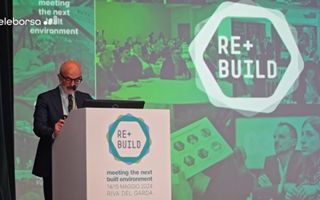(Finance) – “The challenge posed by Green House directive, which then declines the European Green Deal, is a challenge that apparently sees us dealing with a date far from us: in 2050 we should have a completely decarbonised heritage. Actually, 2050 is behind the angle if we consider the necessarily long times of transformation and the fact that in recent years we have supported the construction sector with absolutely extraordinary measures”. This is what underlines Ezio MicelliPresident of the Scientific Committee of REbuild.
“We have to re-imagine the entire supply chain taking into account, on the one hand, the increase in productivity, i.e ability to respond to the needs of families with less expensive products and services and more capable of reaching out to a middle class, and on the other hand, of being able to reach further incentiveswhich may not be 110%, but will still be significant incentives, in order to make up the difference that still exists.”
“If we consider the perspective of 2050 and the enormous amount of work – we are talking about millions of real estate units that will have to be transformed – we must also ask ourselves the ‘virtuous’ perspective of economies of scaleof learning economies that will allow us to increasingly see this as a self-organizing market and less and less as a state-assisted area.”
“The objective could be precisely that, from an economic policy point of view, to imagine a full self-sufficiency of the deep-retrofit sectorthat is, of the profound transformation, with respect to public support, precisely by virtue of a progressive offer alignmentboth in terms of services and production, with respect to the need for one request which, as we also saw this morning in the first conversations here at REbuild, is extremely attentive to environmental issuesin terms of the effectiveness and efficiency of new buildings with respect to these objectives which we consider priorities from a collective point of view”.
